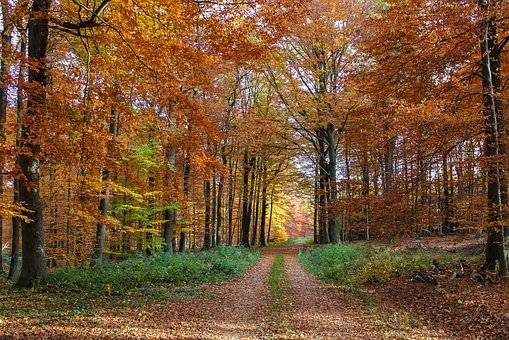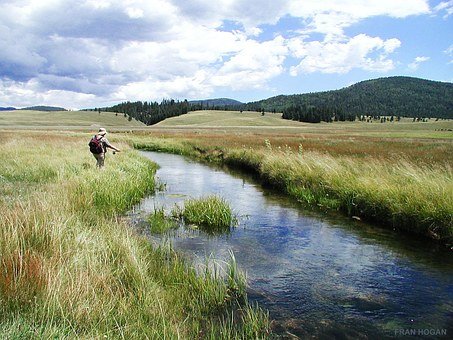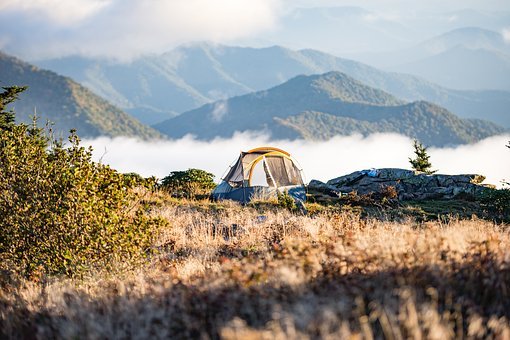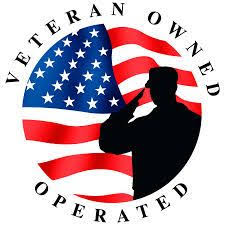
A big advantage of RV (including vans) travel means no more sleeping on the ground in a tent and having to deal with rain, soggy sleeping bags, mud and all that goes with that. With an RV or van, all your camping gear is with you inside your RV and basically all you have to do is pull over, put your vehicle in park and turn your key off. Practically any piece of ground, parking lot and some city streets can become an instant campsite for a night. I think the temptation to dry camp or boon dock appeals to that free spirit in most of us that enjoy camping in the great outdoors. Being around other campers in an RV park setting is a feeling of security and a sense of community to some, but for others, the crowded conditions on busy weekends and holidays with campers parked on top of each other, not to mention the noise does not make for an enjoyable time camping. Setting up camp along a quiet river or the furthest point back in a thick forest is what it’s all about to most. Hardly any of us want the sound of an idling diesel motor home or the drone of a generator breaking the silence of our chosen campsite as we throw that fishing line into the rushing waters of that trout stream.

It seems that today, more and more people are joining the ranks of campers and buying that motorhome, van or popup camper and heading out. Well, because of all this interest in the great outdoors, you may be surprised when you pack up that new motorhome and head out to the mountains in the fall to enjoy the changing colors. You arrive at your destination thinking that you’ll just pull into a campground and set up camp. Oh, you didn’t think about making a reservation? You find out quickly that others have the same idea and the park is full. What to do? It’s getting late and everyone’s exhausted. Any experienced RV’er knows full well how quickly campgrounds can fill up. In situations such as this, you may be forced into dry camping in a Walmart parking lot or deserted field.
RV parks, even the lesser known ones are becoming quite pricey; even as much as a moderately priced motel. If spending a night at a state or national park appeals to you, you’ll find they are usually cheaper than RV parks and usually have some terrific views as well. But again, it’s best to check with that park for reservations. Most of my friends that I’ve met over the years, rarely pay for camping. They opt for the wide open spaces of the deserts or mountains or other free dry camping areas. I’m talking about areas, some of which are so remote that the expensive satellite dish on that million dollar diesel pusher won’t even work. I’m talking about generating your own power with solar panels, carrying fresh water in, eating food from tin cans and fresh trout from that rushing stream you’re parked by. It doesn’t matter if you’re in a converted cargo van, an old used truck camper or a million dollar diesel pusher, free camping can be found throughout the millions of acres of BLM (Bureau of Land Management) land.

However, contrary to popular belief, the world is not your oyster. There are laws and rules you must follow and obey. Safety is another issue and must be factored in. Many of the smaller, towable RV’s on the market do not have generators, inverters or even solar power. When deciding to dry camp, all of this has to be considered. And, don’t forget to carry enough water to sustain you and your crew for the duration. Have you considered hygiene, showers, toilet requirements and the like.

If you’re an inexperienced dry camper, safety is a big issue. While most campgrounds are relatively safe with their fences and lighting and so forth, dry camping has it’s own safety issues to consider. Think about being all alone in the deepest, darkest forest. When I made my first trip off-grid to such a place, every snap of a tree branch sent me into a sitting up position, thinking big foot was coming for me. After a few such trips, I no longer have those concerns as it’s all part of the experience of dry camping, but I never compromise the safety factor. On the other hand, I’ve slept under street lights on city streets and Walmart parking lots. These situations do not make for the best night’s sleep either but it does provide some assurance of safety for some. Just be prudent and insure your doors and windows are locked and your keys are close and easily accessible in case you need to move fast. In the case of dry camping, I always place my keys by the ignition and park my van headed in the direction of the road I want to leave by in case I have to leave in a hurry. I also have a can of wasp and hornet spray near by. No, I’m not afraid of being attacked by wasps during the middle of the night, but I have learned that a can of wasp and hornet spray can spray an accurate stream 10-12 feet easily and it’s strong enough to disable a full grown man long enough for me to get away. I rarely carry a firearm, not because I don’t know how to use it, I do. Being former military, I am well versed on the use of a firearm and I have a concealed carry permit, however, some states I travel through and camp in does not allow firearms… period! For me, it’s simply this; I do not want to be stopped for a traffic infraction or some other reason and have a cop find the firearm in my vehicle and arrest me for it. The wasp and hornet spray is adequate for my protection. Some I know, do carry firearms, some carry bear spray which is also a good protection agent. I suppose a Louisville Slugger would work as well, but I don’t want some would-be thief or suspicious person that close to me.
Sam Walton, the founder of Walmart started letting RV’er stay in Walmart parking lots overnight many years ago. That policy is still in effect today (for most Walmarts). It’s my understanding that the local manager makes that decision for his/her store, so if Walmart is your preference for a night’s stay, it may be a good idea to check with the local manager. I’ve seen some Walmarts that strictly prohibit overnight stays and are posted as such. A lot of this has to do with local city ordinances as opposed to Walmart’s policy. Some overnighter’s have also caused the problem by leaving their trash and worse in Walmart parking lots. I’ve seen RV’er roll out their awnings, set up grills, let out their roll-outs and place chairs outside and basically set up camp. This is not what Walmart intended with it’s generous overnight stay policy.
If you’re new to the dry camping idea, it might be best to take a dry run (no pun intended) before heading out to the desert or mountains and no hookups.

A lot of RV parks have an area set aside for primitive camping, for tents, etc. It might be a good idea to spend a couple of nights in such an environment to see how you do with no hookups to water, electric and sewer before heading out to the unknown. You’ll get an idea as to how much water and propane gas you will need to carry and how you fare without electricity and sewer. You’ll also get an idea as to how to prepare for provisions to bring with you when you dry camp.
If you liked this post, please follow me.
Until next time…


